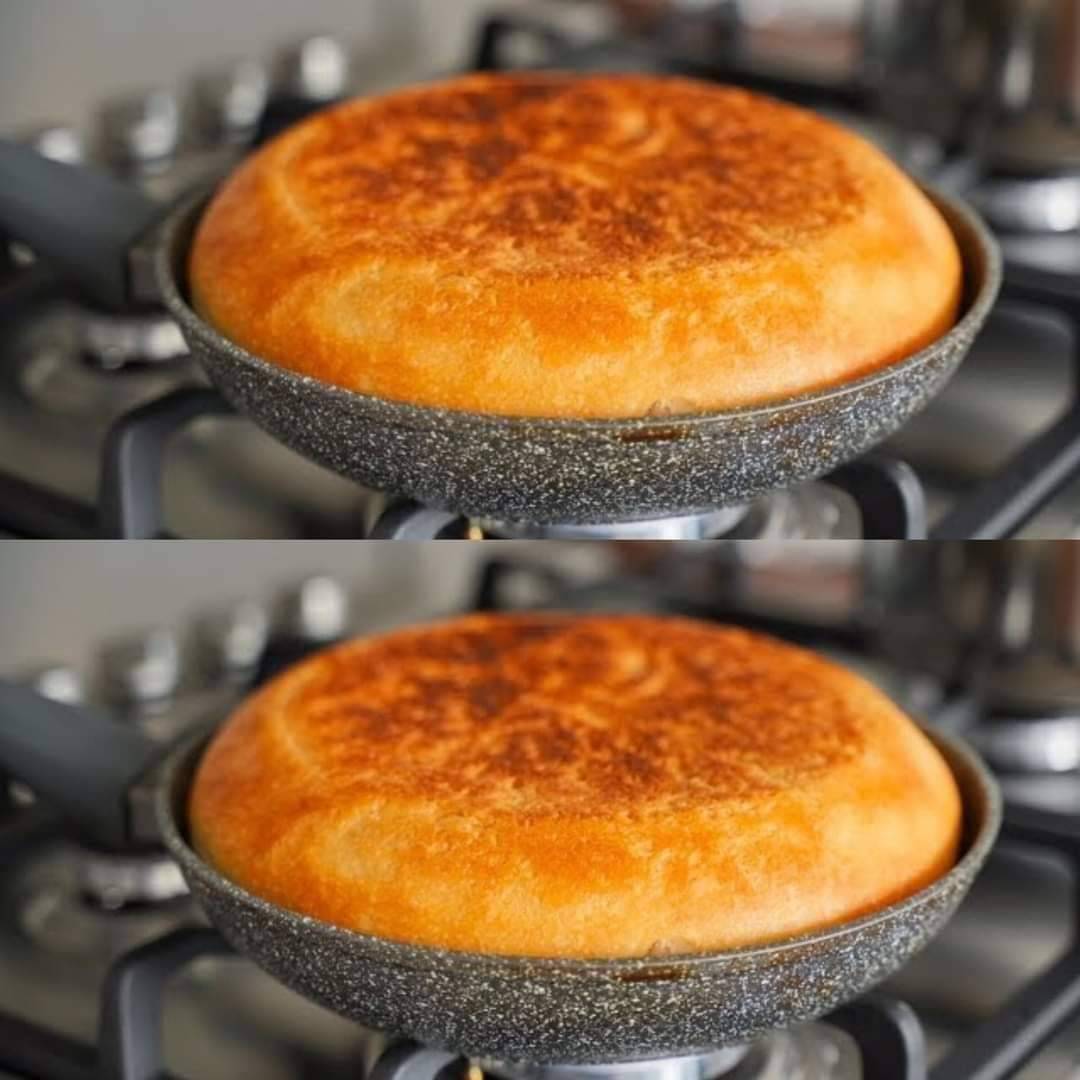Instructions:
1. ACTIVATE THE YEAST
- In a small bowl, combine the warm water, sugar, and yeast. Stir gently and let it sit for about 5-10 minutes until the mixture becomes frothy.
2. MIX THE DOUGH
- In a large mixing bowl, combine the flour and salt. Make a well in the center and add the yeast mixture and olive oil.
- Mix until a dough forms. If the dough is too sticky, add a little more flour. If it’s too dry, add a bit more water.
3. KNEAD THE DOUGH
- Turn the dough out onto a lightly floured surface. Knead for about 8-10 minutes until the dough is smooth and elastic.
4. LET THE DOUGH RISE
- Place the dough in a greased bowl, cover with a clean cloth or plastic wrap, and let it rise in a warm place for about 1 hour, or until it has doubled in size.
5. SHAPE THE DOUGH
- Once the dough has risen, punch it down to release the air. Turn it out onto a floured surface and shape it into a round loaf or divide it into smaller portions for individual rolls.
6. PREHEAT THE PAN
- Heat a large, heavy-bottomed skillet or non-stick pan over medium-low heat. Grease the pan lightly with olive oil.
7. COOK THE BREAD
- Place the dough in the preheated pan. Cover with a lid or aluminum foil to create an oven-like environment.
- Cook for about 10-12 minutes on one side, then flip and cook for another 8-10 minutes on the other side. The bread should be golden brown and sound hollow when tapped.
8. COOL AND SERVE
- Remove the bread from the pan and let it cool on a wire rack for a few minutes before slicing. Enjoy your homemade bread warm with your favorite toppings!
Benefits of Stovetop Bread
- Convenient: No need for an oven; perfect for small kitchens or hot weather.
- Quick: This method is faster than traditional baking, with less preheating and quicker cooking times.
- Delicious: Fresh, homemade bread with a crispy crust and soft interior.
Tips for Best Results
- Low and Slow: Cook on medium-low heat to ensure the bread cooks through without burning the crust.
- Covered Cooking: Covering the pan helps trap heat and moisture, mimicking the effect of an oven.
- Experiment: Try adding herbs, seeds, or whole grains to the dough for added flavor and texture.
Conclusion
Making bread in a pan is a fantastic alternative to traditional oven baking. This method produces delicious, homemade white bread that’s perfect for sandwiches, toast, or enjoying on its own. Give this recipe a try and enjoy the satisfaction of fresh, warm bread made right on your stovetop.
Enjoy!
Pages: 1 2

